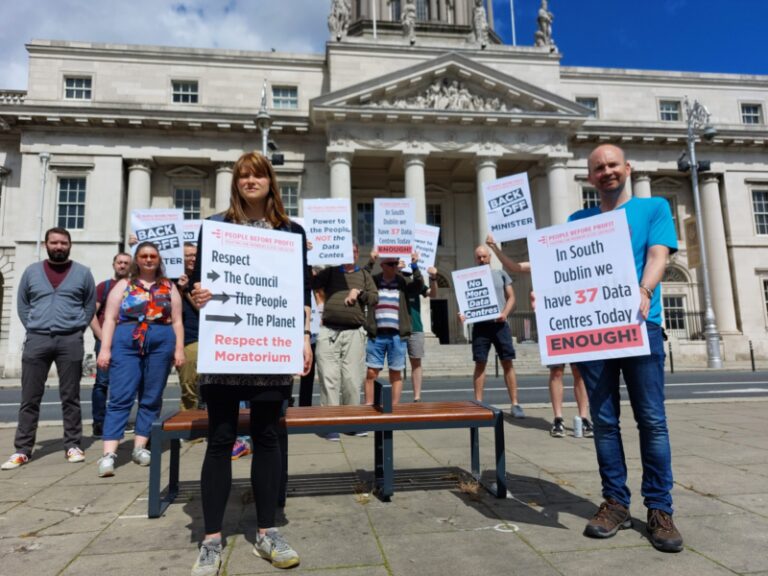A local councillor has expressed outrage at the decision by Minister of State for Local Government Peter Burke to overturn a moratorium on data centres in South Dublin. In June councillors voted to amend the South Dublin County Development Plan to ban any new data centres in the county until 2028. The amendment was proposed by People Before Profit Councillor Madeleine Johansson and was passed by a majority of councillors. Following a recommendation of the Office of the Planning Regulator the Minister has issued a direction instructing the council to remove the amendment. The decision will go out to public consultation for two weeks.
There has been increasing concern about the numbers of data centres in the South Dublin County Council area with 37 already in operation. Data centres use up a lot of energy and water and are putting increasing strain on the electricity grid in the Dublin region. Arguments put forward in favour of the amendment included the inability of Ireland to meet its carbon emissions targets, as well as the threat of power cuts as the grid comes under increased pressure.
Cllr Madeleine Johansson commented: “I am absolutely outraged by the decision of the Minister to overturn the moratorium which was agreed by councillors. This is an attack on local democracy and makes a mockery out of local decision making. “The arguments put forward by the Office of the Planning Regulator against the amendment were very weak, and centred around the fact that there is no national policy to ban data centres. In my motion I made strong arguments, backed up by facts, about Ireland’s inability to meet our Climate Action targets if we continue to permit more data centres. I also made reference to a number of objectives in national policy which would back a moratorium on data centres. I believe that there is a contradiction in national policy between our commitment to reducing carbon emissions and allowing more data centres.
“It’s clear to me that this government is more interested in looking after the big corporations than tackling climate change and ensuring that our local communities have sufficient electricity to heat their homes.


